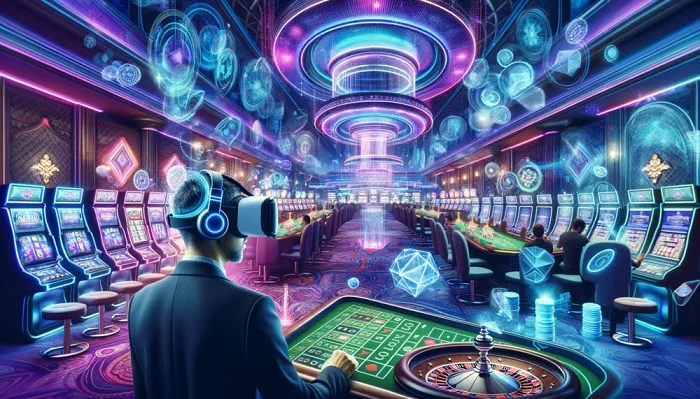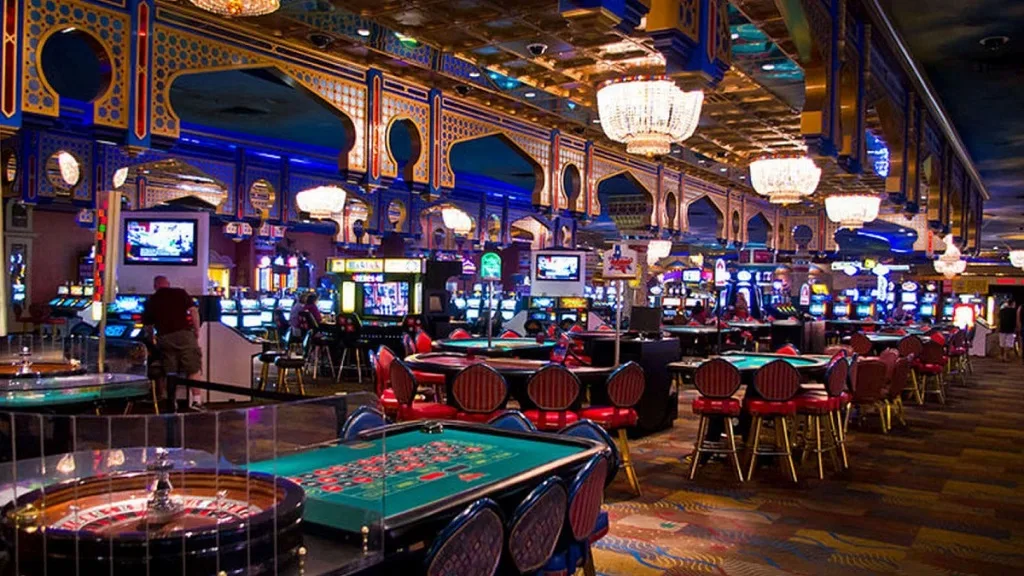Evolution of Gambling: How Casinos Have Transformed Over Time

The origins of gambling houses can be traced back several centuries, but the modern concept of the casino began in Europe, with establishments like the Casino di Venezia opening in 1638. These venues were not just about gambling; they were social hubs where the elite could gather. The traditional casino was synonymous with opulence and luxury, offering a mix of gaming, entertainment, and social interaction.
As casinos spread globally, they became more accessible to a wider audience. The mid-20th century saw the rise of Las Vegas, transforming a desert town into the gambling capital of the world. This era cemented the casino’s cultural significance, blending gaming with other forms of entertainment to attract visitors from all over the globe.
How the Casino Changed to Become an Online Casino
The digital revolution of the 1990s was pivotal for the gambling industry. The launch of the first online casinos revolutionized gambling, making it accessible to anyone with an internet connection. This transition was fueled by advances in technology and web security, allowing secure online transactions.
Online casinos offered the classic games like blackjack, poker, and slots in digital format, enabling players to gamble from the comfort of their homes. The convenience and accessibility of online gambling led to its rapid growth. Regulatory frameworks developed during this period helped legitimize online gambling, providing players with protections and ensuring fair play.
The adoption of mobile technology further expanded the reach of online casinos. Smartphones and tablets allowed casinos to offer mobile-optimized games, thus catering to the modern gambler’s preference for playing on the go.
Why People Liked Online Casinos
One of the main attractions of online casinos was the convenience they offered. Players could access a wide range of games at any time without the need to travel to a physical location. This aspect was particularly appealing to those who lived far from traditional casinos or who had limited mobility.
Another significant advantage was the variety of games available. Online casinos could host hundreds of games on their platforms, including variations that were not feasible in physical casinos due to space constraints or lack of demand.
Online casinos also offered attractive bonuses and promotions, which were not typically available in land-based casinos. These incentives included welcome bonuses, free spins, and loyalty rewards, enhancing the gaming experience and providing more value to players.
Moreover, the privacy and anonymity offered by online gambling platforms allowed individuals to gamble without social stigma. This aspect was particularly valued by players who preferred privacy over the social environment of traditional casinos.
How the Casino Transformed from an Online Casino to a VR Casino
As technology progressed, so did online gambling platforms. The advent of VR technology marked the next significant leap in the evolution of casinos. VR casinos simulate a virtual casino environment, complete with realistic slot machines, gaming tables, and even other players.
The immersive nature of VR gambling creates a more engaging experience that closely mimics being in a physical casino. Players can interact with their environment and other gamblers, enhancing the social aspect that was somewhat lost in traditional online casinos.
Developments in VR technology have allowed for more interactive and engaging gaming experiences, attracting a demographic that seeks cutting-edge entertainment. Moreover, VR casinos offer the potential for innovations such as real-time data visualization and more nuanced player interaction, further enhancing the gambling experience.
The integration of VR into online gambling also addresses some privacy and security concerns by providing more controlled and immersive environments, potentially increasing trust among users.

How Realistic is a VR Casino?
VR casinos strive to replicate the physical experience of gambling in every detail, from the tactile sensations of handling chips to the sounds of a bustling casino floor. Advanced VR setups even incorporate motion tracking and haptics to simulate the physical interactions involved in gambling.
However, despite significant advancements, there are still limitations to the realism of VR casinos. Factors such as the resolution of VR headsets and the latency in motion tracking can detract from the feeling of being in a real casino.
Yet, ongoing technological improvements continue to bridge the gap between virtual and real, promising even more realistic and immersive gambling experiences in the near future.
Is This the Limit of Casino Development or Is There Somewhere Else?
The current trajectory of casino development suggests that the industry will continue to embrace new technologies to enhance the gambling experience. Innovations in artificial intelligence, machine learning, and blockchain could further transform how casinos operate and how games are played.
The potential integration of AI could lead to personalized gambling experiences, with smart algorithms adjusting the gameplay to suit individual player preferences and skill levels. Blockchain technology could also revolutionize online gambling by enhancing transparency and security in transactions.
As we look to the future, it is clear that the evolution of casinos is far from complete. The gambling industry remains at the forefront of technological adoption, continually seeking new ways to engage and entertain players in a safe and responsible manner.
